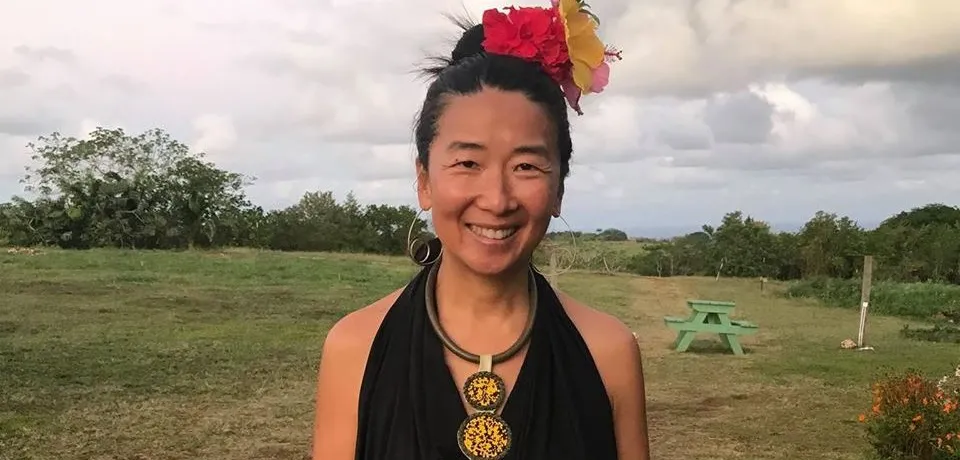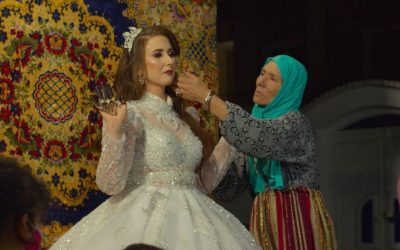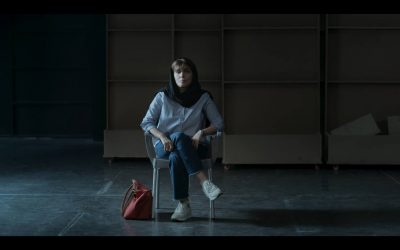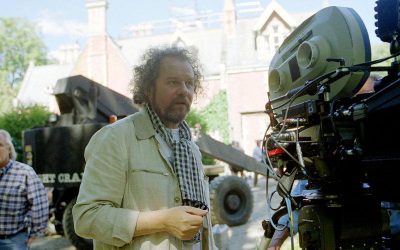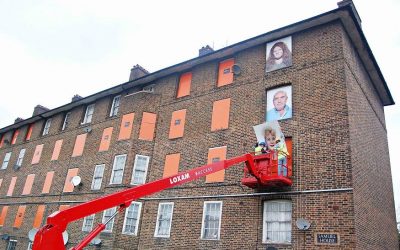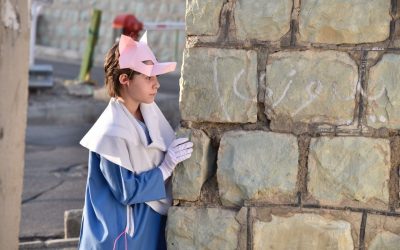iara lee, a Brazilian of Korean descent, is an activist, filmmaker, and founder/director of the Cultures of Resistance Network, an organization that promotes global solidarity and connects and supports agitators, educators, farmers, and artists to build a more just and peaceful world through creative resistance and nonviolent action.
RedCut: As a filmmaker activist, how do you examine the relationship between activism and cinema in terms of advocacy?
iara lee: Cinema itself can be a type of activism; form and style can be as important as content. As said in the past: “The role of the artist is to make the revolution irresistible.” Sometimes that is best done not through highly didactic approaches, but rather through compelling art that can give rise to emotion, empathy, and the human instinct for social justice.
RedCut: How significant do you consider the role of documentary filmmaking in activism, amplifying the voices of oppressed people, and broadening awareness of situations often sidelined or suppressed by mainstream media and power structures?
iara lee: From raising public awareness to lifting up unheard voices are important functions of what socially engaged filmmakers must try to accomplish. The aim is to definitely work diligently with these goals in mind.
RedCut: During the Iraq war in 2003, you decided to live in the MENA region (Middle East & North Africa) in order to understand the conflict from that perspective. While residing in Lebanon in 2006, you experienced firsthand the 34-day Israeli bombardment of that country. Moved by that experience, you since dedicated yourself to the pursuit of a just peace in the region, and you are an enthusiastic supporter of those initiatives which strengthen adherence to international law. Could you let us know more about your experience?
iara lee: Oftentimes, I think war is driven by fear-mongering and ignorance about people we do not understand. During the so-called “War on Terror,” besides the ‘blood for oil’, there was a lot of racism and Islamophobia that drove those disastrous invasions in Iraq and Afghanistan. My thought was that we would be better served by understanding the cultures of the Middle East and North Africa more intimately, forging bonds between peoples, and extending empathy and solidarity instead of waging war on them. My experience of being in Lebanon did further my education about some of the long-standing conflicts in the region, and it strengthened my commitment to the cause of promoting human rights and justice for Palestinians too. Obviously, that is something that remains very relevant today, as we are witnessing the horrific destruction of Gaza by the Israeli military.
RedCut: In 2008, you lived in Iran and supported a number of cultural exchange projects with the goal of promoting arts and culture for global solidarity. Why did you decide to go to Iran and let us know more about your experience in Iran?
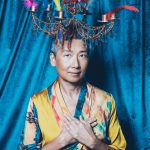
iara Lee, Activist and Feminist Filmmaker
iara lee: There has been a history of demonization of Iranian people in Western media. It’s essential to understand that, within Iran, there are numerous movements actively pushing for peace and democracy. These movements, often grassroots in nature, are striving for greater freedoms and human rights within their own country. The escalating conflicts between the West and Iran can be counterproductive to the effectiveness of these movements. Instead of perpetuating international tensions, we should be fostering person-to-person connections. Such ties can offer meaningful support to grassroots initiatives. It’s through understanding, cooperation, and support to these movements that we can offer our solidarity. That’s why I made several short films, including Opposing Violence Towards Iran (in 2011), Tehran Ratz: Graffiti for a New Iran (in 2010), and Iran Inside Out (in 2009), which profiles a Chelsea Art Museum exhibit that featured work by 56 Iranian artists living both inside the country and throughout the diaspora. The Tehran Ratz short film profiled a pair of graffiti artists that used their work as a form of resistance against repression. Telling the stories of all these artists and activists is one way to counteract the stereotypes and misconceptions about Iranians, highlighting the diversity and complexity of thought within their own country.
RedCut: In 2010, you directed the feature-length documentary CULTURES OF RESISTANCE, which explores how creative action contributes to conflict prevention and resolution. Let us to know about the documentary why you decided to make it and what was the idea to start it?
iara lee: When people think about being politically involved, I think often what they imagine is only a very narrow range of activities, like going to a protest, or lobbying elected officials, or signing a petition. Those things are important, but they can grow very boring and routine. What I found when traveling around the world is that people are finding all sorts of other ways to resist as well. They are using art and creativity to push for peace with justice. In my Cultures of Resistance feature documentary I wanted to highlight all of these different creative ways that people were finding to promote change. So the movie shows hip-hop musicians, indigenous rights activists preserving traditional cultures, it shows dancers and political cartoonists. The message I wanted to convey was that there are a million different ways that all of us can get involved.
RedCut: In 2012, you directed a documentary called THE SUFFERING GRASSES: when elephants fight, it is the grass that suffers, which examines the Syrian conflict through the humanity of the civilians who have been killed, abused, and displaced to the squalor of refugee camps. How was your experience during filming in the camps? Why you decided to go there?
iara lee: When I made my film about the beginning of the Syrian war, many people inside the country were suffering tremendously, yet I witnessed the most courageous acts of resilience. In the film you can see people protesting a repressive regime, doctors risking their own lives to help injured people, women risking everything by hiding medicine under their abayas to get through checkpoints. Solidarity, even amidst extreme brutality, was very beautiful to witness. I wanted to show this side of the conflict in Syria.
RedCut: In 2013, you made a short film titled THE KALASHA AND THE CRESCENT, which chronicles how this indigenous minority in northern Pakistan responded to the challenges facing their culture. Tell us more details about this experience?
iara lee: One important focus in my work with Cultures of Resistance has been to expose injustices against indigenous people and to work with them to promote their cultural survival. In this documentary, I tried to share the story of the Kalash and their culture, in their own words. The Kalash people are a small indigenous minority group in Pakistan. Their population hovers around 3,000 and they have been fighting for decades to preserve their unique religion, language, and culture. One of the causes of their marginalization has been a refusal to convert to Islam. I traveled to Pakistan to document the Kalash spring festival and used it as an entry point into exploring this vibrant community and the tough questions facing it, questions like: What does conversion to Islam or other religions—whether forced or voluntary—mean for Kalash identity? Can Kalash traditions withstand the challenges brought by globalization, new technology, and changing times? Although these questions take a particular form in that region of Pakistan, they are actually very universal: They are issues that Indigenous groups in many parts of the world face.
RedCut: In 2015, you completed two new documentaries: K2 AND THE INVISIBLE FOOTMEN, shot in stunning northern Pakistan, chronicles the plight of the indigenous porters of majestic K2, the earth’s second-highest peak. LIFE IS WAITING: Referendum and Resistance in Western Sahara looks at more than forty years of Moroccan occupation and the Sahrawi nonviolent struggle for self-determination by a people for whom colonialism has never ended. We would like to know more details about it.
iara lee: Making both of those films were powerful experiences for me. The documentary about K2 is set on the world’s 2nd highest and most challenging mountain, a peak that draws climbers from across the globe, all dreaming of reaching its summit. Yet, what truly captivated me was the indispensable role played by the local porters. Often from Pakistan or Nepal, these heroes are often overlooked, yet they are essential to the success of such climbing expeditions, and they are paid far less than international expedition leaders. Because the stories of the porters are seldom told, I decided to make a documentary about them. The film itself is dedicated to Amir Mehdi, a high-altitude porter from Pakistan who suffered the loss of all his toes to frostbite during the first successful ascent of K2 in 1954. Tragically, many porters have sacrificed far more, even their lives. A stark example occurred just last summer when a 27-year-old porter perished on the mountain and his body was passed by climbers focused on setting records. Experiencing the porters’ extraordinary dedication and sacrifice firsthand deeply moved me, prompting me to want to highlight their crucial and often-unrecognized contributions. Turning to Western Sahara, often referred to as Africa’s last colony, I found myself confronted with a largely unknown and ongoing human rights crisis. The region’s struggle for self-determination was something I had to educate myself about extensively. Realizing the lack of public awareness surrounding this issue, I felt compelled to bring it to a broader audience. This led me to produce the documentary ‘Life Is Waiting,’ which aims to educate and inform people about the struggle of the Sahrawi people for their rights and autonomy. For more than forty years, Morocco has occupied a large part of Western Sahara, and the Sahrawi people have never been permitted the referendum on self-determination that they were promised after a UN-brokered ceasefire in 1991. Facing repression and hopeless conditions, tens of thousands of Sahrawis have fled Western Sahara. One Sahrawi featured in the film, our friend, Flitox Krizi Sahraui, died after filming, while trying to get to the Canary Islands by boat from the shores of Dakhla city in the south of Western Sahara, hundreds of miles away. I continue to make films for people like Flitox, and his memory inspires us to remain committed to supporting efforts to resist occupation and oppression around the world.
RedCut: [In recent months] Israeli strikes have killed at least 30,000 people, three-quarters of them women and children what do you think about this genocide? Do you think filmmakers’s voices could help? What is your idea to make a space and platform to hear palestinian people in the world more and more?
iara lee: The situation in Gaza is a massive political humanitarian crisis. We are witnessing a genocide situation in which tens of thousands of civilians are being killed by the Israeli government, famine is spreading, and more than 2 million people, including a vast number of children, are being bombed and displaced as collective punishment for the actions of Hamas militants. It’s a scenario that calls for immediate global attention and action—the most urgent need being an immediate ceasefire. Can filmmakers help? Sometimes it is easy to be overwhelmed with despair in these moments when we are witnessing such savage injustice. But, in the end, there is no choice but for people of conscience to join together and do what we can to promote peace and to stand up for human rights. If you are a filmmaker, then yes, use your storytelling skills to raise awareness. But my belief is that whatever your background and talents, you should use them to take action. I always say that we need artists for peace with justice, and also organizers, lawyers, dancers, farmers… Everyone has something that they can contribute. We just need to take that step where we go beyond sadness or apathy or doom-scrolling and instead do something proactive to be a part of social movements for justice.

